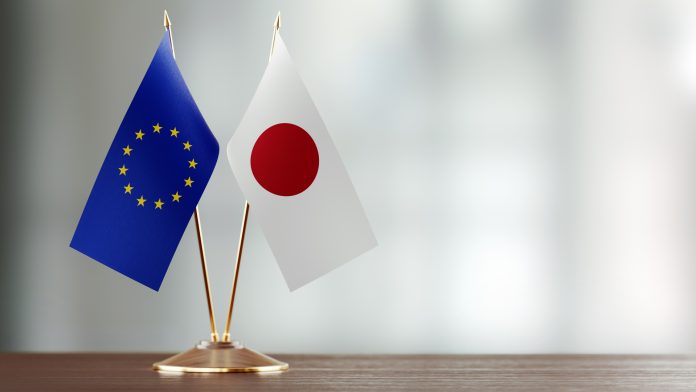2020 marks the first anniversary of the EU-Japan Economic Partnership Agreement (EPA), but what sectors could stand to gain the most from the partnership?
In the first ten months following the implementation of the EPA, EU exports to Japan went up by 6.6% compared to the same period the year before. This outperforms the growth in the past three years, which averaged 4.7%. Japanese exports to Europe grew by 6.3% in the same period.
Commissioner for Trade Phil Hogan commented: “The EU-Japan trade agreement is benefiting citizens, workers, farmers and companies in Europe and in Japan. Openness, trust and a commitment to established rules help deliver sustainable growth in trade.
“The EU is and will continue to be the largest and most active trading block in the world. The EU is a trusted bilateral partner to more than 70 countries, with whom we have the biggest trading network in the world.”
What sectors have seen growth?
- Meat exports increased by 12%, with a 12.6% increase for pork exports, and frozen beef exports have more than tripled.
- Dairy exports were up by 10.4% (including a 47% increase in butter exports).
- Beverages exports went up by 20%, with 17.3% growth in wine exports.
- Leather articles exports and apparel have seen an increase of 14% and 9.5%, respectively.
- Electrical machinery exports, such as telecommunications equipment, storage devices and electronic circuits went up by 16.4%.
The EU-Japan EPA offers new opportunities for EU businesses of all sizes to export to Japan. It removes the vast majority of the €1bn in duties that were charged annually on EU exports to Japan. Once the agreement is fully implemented, Japan will have scrapped customs duties on 97% of goods imported from the EU and annual trade between the EU and Japan could increase by nearly €36bn.
What sectors do the EC say could profit from EPA?
- Spanish leather goods: Spanish shoe company Masaltos gets nearly two-thirds of its revenue from overseas sales, with Japan accounting for 4%. It has become more competitive on the Japanese market, as the EPA has helped reduce costs for exporters of luxury products.
- French seeds: France’s HEMP-it is a farmers’ cooperative specialising in producing and certifying seeds. They have been working with the Hokkaido Hemp Association for the past four years, trying to restart the traditional hemp crop in Japan. The EU’s trade agreement with Japan could help develop the business between HEMP-it and Japanese farmers by developing plant varieties without any THC.
- Irish beef: Bord Bia, the Irish Food Board, has been promoting EU beef in a project co-financed by the EU. The campaign seeks to highlight Europe’s high standards of food safety, quality and sustainability in Japan. Thanks to the EU-Japan EPA, tariffs on beef will gradually fall to 9% over the period of the agreement. This means Irish beef products can be sold at competitive prices.







